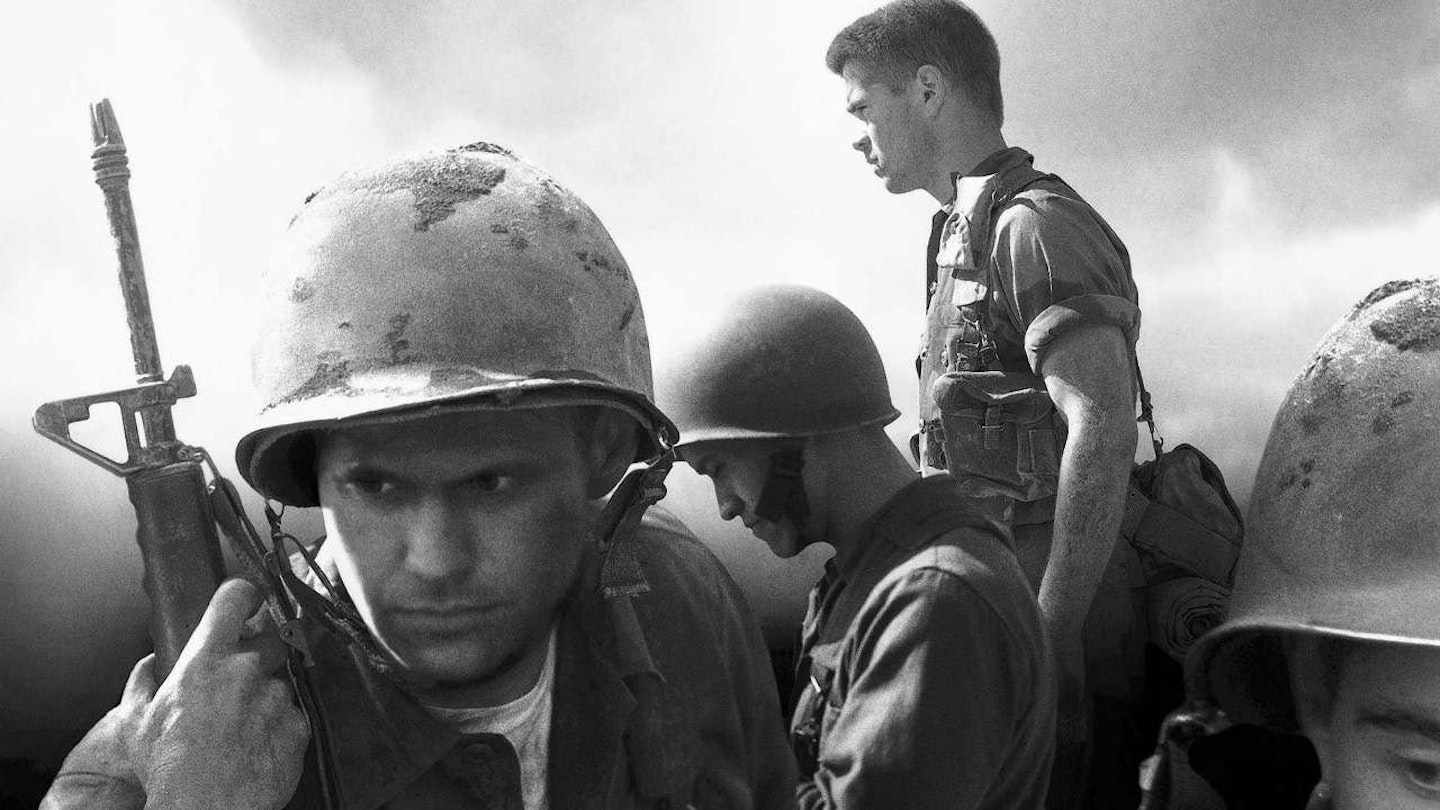For his detractors, the news that Joel Schumacher was in the midst of making a ‘Nam movie was about as welcome as Michael Winner announcing a Lawrence Of Arabia re-make. ‘Oh Christ,’ they were heard to mutter of the Lost Boys/Batman Forever/Flawless director, ‘It’ll be St. Elmo’s Under Fire, then.’
Not only was the subject matter hardly typical for him, but the movie was said to be heavily influenced by the stripped-down Dogme 95 shooting style, with his usual lush production design and polished cinematography abandoned in favour of grainy 16 mill, a cast of unknowns, a 28-day shoot and minimum external lighting and make-up. Things did not bode well. Yet what the naysayers were missing is that this kind of low-budget ensemble piece is what Schumacher has always been good at.
Despite being tarred with some of the excesses of the ‘80s, both **The Lost Boys (1987) **and **St. Elmo’s Fire (1985) **featured young, talented casts of unknowns in ‘bonding’ situations, while in **Falling Down (1992) **he proved he could successfully tackle edgier, more provocative material. With Tigerland he draws on both strengths, to produce a beautifully crafted, brilliantly acted and gently moving film that only occasionally lapses into sentimentality.
Drawing more on boot-camp flicks like Biloxi Blues and the first half of Kubrick’s Full Metal Jacket than Platoon or Casualties Of War, Tigerland presents a company of trainee soldiers resigned to their grim fate, until congenital rebel Bozz (Farrell), arrives, both giving hope to his fellow draftees with his knowledge of military law, and driving the American war machine spare with his misdirected talents.
Schumacher shows his familiar talent for rooting out new talent (in the effortlessly charismatic Farrell he has pretty much conjured up a ready-made superstar, while Shea Whigham is also a standout as uptight army-boy Wilson), while Matthew Libatique’s cinematography (also utilised by Darren Aronofsky on Pi and Requiem For A Dream) is in gritty faux-documentary style, with colour drained out leaving only the dull, muddy greys and greens of boot camp.
But it’s Klavan and McGruther’s screenplay - based on Klavan’s real-life experiences in the army - that’s the movies real strength, as it deftly negotiates the odd cliché (the sadistic NCO who’s a coward at heart, the obligatory barracks assault together with a truly stupendous level of nudity) and heads for a poignant, understated ending in which yet another batch of America’s finest head off to become very lost boys indeed.
